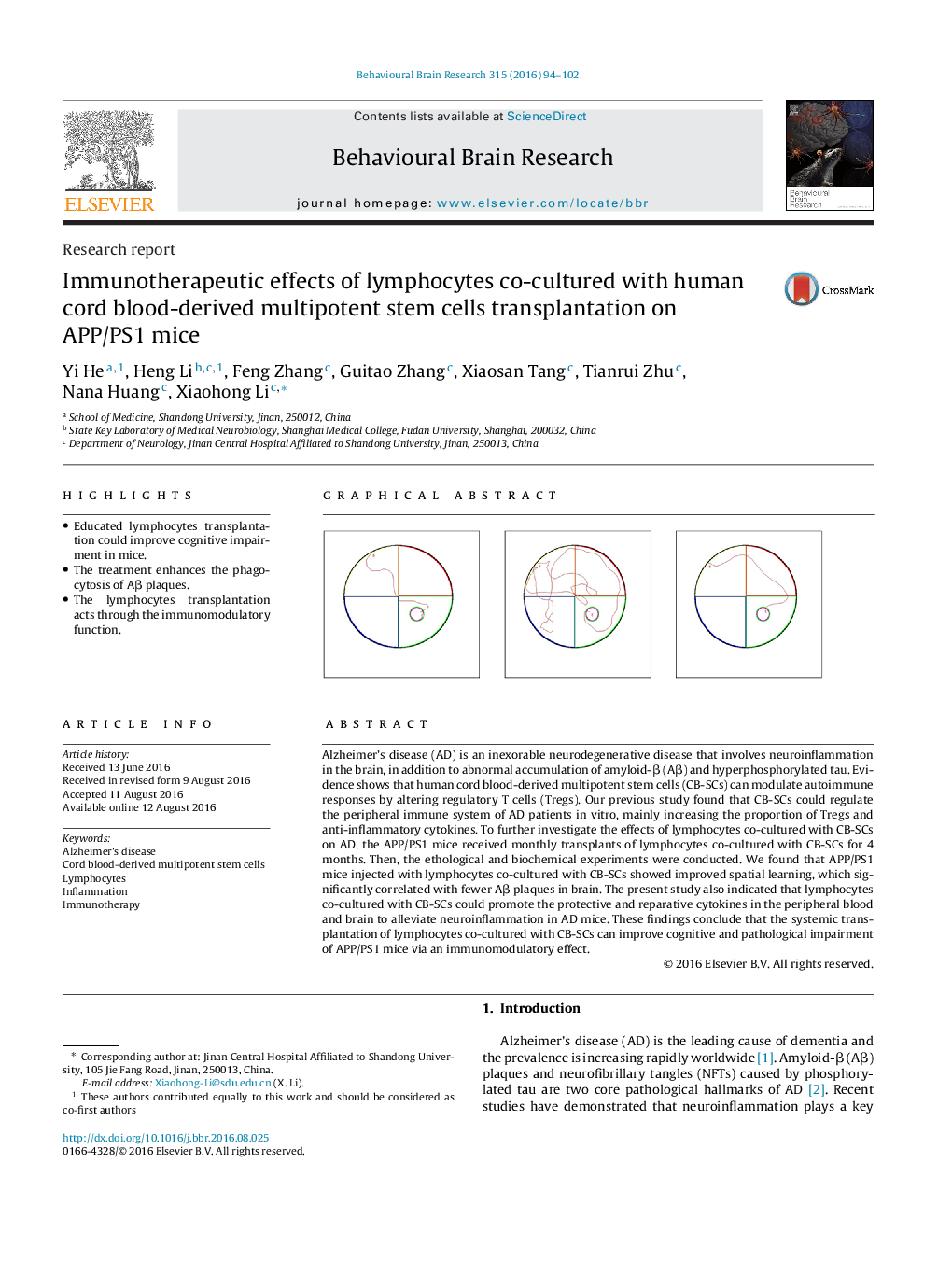| Article ID | Journal | Published Year | Pages | File Type |
|---|---|---|---|---|
| 4312037 | Behavioural Brain Research | 2016 | 9 Pages |
•Educated lymphocytes transplantation could improve cognitive impairment in mice.•The treatment enhances the phagocytosis of Aβ plaques.•The lymphocytes transplantation acts through the immunomodulatory function.
Alzheimer’s disease (AD) is an inexorable neurodegenerative disease that involves neuroinflammation in the brain, in addition to abnormal accumulation of amyloid-β (Aβ) and hyperphosphorylated tau. Evidence shows that human cord blood-derived multipotent stem cells (CB-SCs) can modulate autoimmune responses by altering regulatory T cells (Tregs). Our previous study found that CB-SCs could regulate the peripheral immune system of AD patients in vitro, mainly increasing the proportion of Tregs and anti-inflammatory cytokines. To further investigate the effects of lymphocytes co-cultured with CB-SCs on AD, the APP/PS1 mice received monthly transplants of lymphocytes co-cultured with CB-SCs for 4 months. Then, the ethological and biochemical experiments were conducted. We found that APP/PS1 mice injected with lymphocytes co-cultured with CB-SCs showed improved spatial learning, which significantly correlated with fewer Aβ plaques in brain. The present study also indicated that lymphocytes co-cultured with CB-SCs could promote the protective and reparative cytokines in the peripheral blood and brain to alleviate neuroinflammation in AD mice. These findings conclude that the systemic transplantation of lymphocytes co-cultured with CB-SCs can improve cognitive and pathological impairment of APP/PS1 mice via an immunomodulatory effect.
Graphical abstractFigure optionsDownload full-size imageDownload high-quality image (115 K)Download as PowerPoint slide
